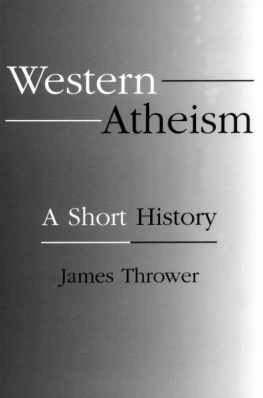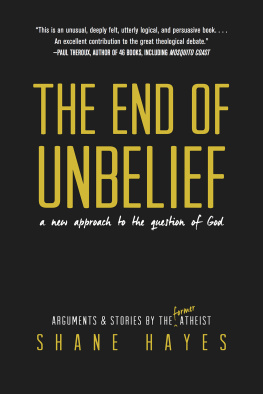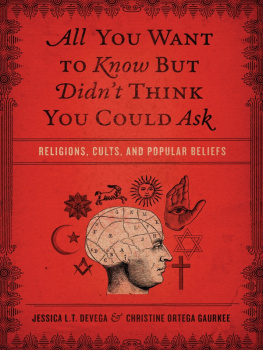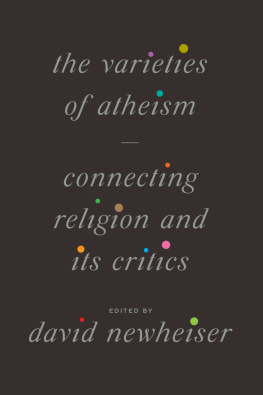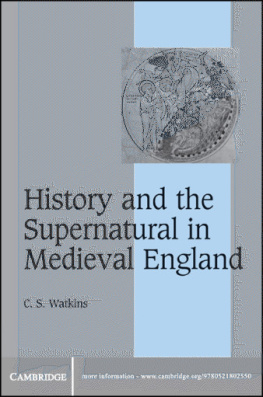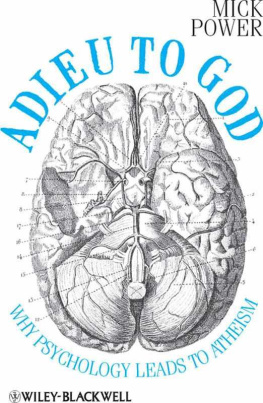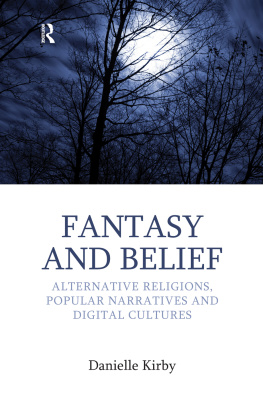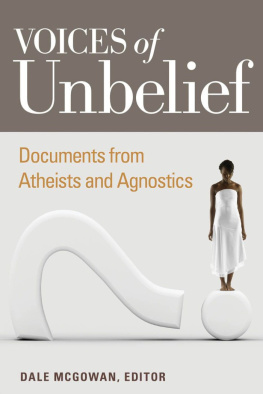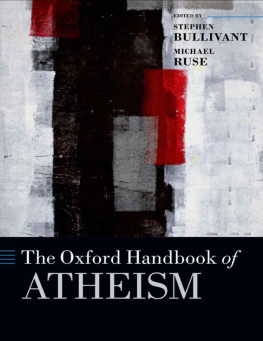Thrower - Western Atheism: A Short History
Here you can read online Thrower - Western Atheism: A Short History full text of the book (entire story) in english for free. Download pdf and epub, get meaning, cover and reviews about this ebook. year: 2009, genre: Religion. Description of the work, (preface) as well as reviews are available. Best literature library LitArk.com created for fans of good reading and offers a wide selection of genres:
Romance novel
Science fiction
Adventure
Detective
Science
History
Home and family
Prose
Art
Politics
Computer
Non-fiction
Religion
Business
Children
Humor
Choose a favorite category and find really read worthwhile books. Enjoy immersion in the world of imagination, feel the emotions of the characters or learn something new for yourself, make an fascinating discovery.
Western Atheism: A Short History: summary, description and annotation
We offer to read an annotation, description, summary or preface (depends on what the author of the book "Western Atheism: A Short History" wrote himself). If you haven't found the necessary information about the book — write in the comments, we will try to find it.
Western Atheism: A Short History — read online for free the complete book (whole text) full work
Below is the text of the book, divided by pages. System saving the place of the last page read, allows you to conveniently read the book "Western Atheism: A Short History" online for free, without having to search again every time where you left off. Put a bookmark, and you can go to the page where you finished reading at any time.
Font size:
Interval:
Bookmark:






James Thrower

FOR
LIAM DAVID JAMES MACDONALD
Part One: ATHEISM IN CLASSICAL ANTIQUITY
Part Two: WESTERN ATHEISM TO THE SEVENTEENTH CENTURY
Part Three: MODERN ATHEISM
THIS SHORT HISTORY OF WESTERN ATHEISM was first published over a quarter of a century ago, at a time when the history of atheism was little explored. Since that time not only have a number of substantial works on aspects of the history of atheism appeared,' but I have myself continued to explore, in greater detail than was possible in a study intended for the general reader, certain periods in the history of atheism all too briefly touched upon in this work.2 As a result of both my own and of others' studies, I would, were I writing the history of atheism today, be rather more inclined than I was a quarter of a century ago to set the history of atheism within the wider context of the general history of culture and also to stress how, certainly from the nineteenth and twentieth centuries, if not before, there has existed, at least in Europe, a close tie between positive atheism and progressive social and political thought.
Yet, the history of atheism within the Western tradition is very much the history of an idea-the idea that the world, including the human world, might be other than that presupposed by traditional theism-and it is the development of this idea that I sought to briefly present in this work. Yet although atheism begins as the rejection of the idea of the gods and goddesses of traditional religion, and indeed of all occult and supernatural forces supposedly active in human affairs, as atheism develops it becomes, from about the middle of the eighteenth century, more affirmative, offering what the atheist believes to be a truer and more life-enhancing account of the world and of human life within the world than that offered by the theist. Atheism ceases to be, as Fr. Michael Buckley has claimed, simply `parasitic' on theism.'
The major influence on the development of positive atheism is Friedrich Nietzsche who, as I try to show in the relevant chapter of this book, foresaw, with almost prophetic clarity, the consequences of what both he and, quite independently, Dostoevesky described as `the death of God'. Nietzsche, however, unlike Dostoyevsky, welcomed this `death' for, in his judgement, the influence of religion, and of Christianity in particular, has, on the whole, been detrimental to the living of a healthy human life. This was because Christianity has tended to subordinate and, at times, actually denigrate life in this world, seeing men and women's true home as the world to come-a view reiterated in the 1960s in the work of the selfproclaimed American Christian atheist theologian Thomas Altizer, who recognises that "theologically, the twentieth century was inaugurated by theology's reaction against the new estrangement which our time has brought to the Christian faith" and that "one form of this estrangement may be observed in Nietzsche's condemnation of the No-saying of Christianity." Altizer quotes in support the well-known passage from Nietzsche's Antichrist where Nietzsche indicts the Christian religion for its preoccupation with redemption from rather than with life in this world: "God," wrote Nietzsche,
degenerated into the contradiction of life, instead of being its transfiguration and eternal Yes! God as the declaration of war against life, against nature, against the will to live! God-the formula for every slander against `this world', for every lie about the `beyond'! God-the deification of nothingness, the will to nothingness pronounced holy."
Altizer might also have quoted the even more telling lines from Nietzsche's Zarathustra:
I entreat you, my brothers, remain true to the earth, and do not believe those who speak to you of superterrestial hopes! They are poisoners, whether they know it or not. They are despisers of life, atrophying and self-poisoned men of whom the earth is weary: so let them be gone!5
Perhaps the lesson which contemporary atheism must learn from Nietzsche and from those radical Christian theologians, like Altizer, who have sought to reconstruct the Christian message on the basis of the rejection of both the traditional metaphysical conception of `God' and the doctrine of immortality, is that it is time for atheism to move beyond the rejection of religion and to offer an alternative vision of what it is to live a fully human life to that traditionally offered by the religions of the world. The concern of atheists, or at least of those atheists who are also Humanists, should surely be that men and women become fully human in a fully humanised world.
This was a pioneering work and, like all such works, it was and remains a challenge to others to do better. Yet it is still a work which can, I believe, provide a useful overview both of the development of atheism in the West and of the people involved in this development.
The text is published without revision and I must apologise therefore to those readers who might be offended by my usestandard at the time that I was writing-of the terms Bc and AD (instead of the now more conventional BCE and CE) and even more by my use of `man' where, were I writing today, I would have written `men and women'. But although the text is unrevised, I have taken the opportunity offered by republication to provide what was singularly lacking in that earlier edition, namely, a full bibliography of works cited. I have also added a short Afterword describing some of the developments which have taken place in the history of atheism since the book was first written, the most important, in my opinion, being the emergence of a distinctively Christian atheism.
As this book is being published in the United States, I would like to but on record my thanks to Sandy Martin of Veedersburg, Indiana, for the help and support she gave me when I was taken ill on a recent visit to the USA and who, when I was discharged from hospital, offered me the use of her `house in the woods' to recuperate. Without her support at this critical time it is doubtful if the preface and afterword to this book would have been written.
I am dedicating this edition of Western Atheism to my grandson, Liam David James MacDonald, born September 1998, in the hope that when he is of an age to consider the important questions involved in the ongoing debate between theism and atheism, he might find his grandfather's contribution to this debate of some interest.
James Thrower
University of Aberdeen
Font size:
Interval:
Bookmark:
Similar books «Western Atheism: A Short History»
Look at similar books to Western Atheism: A Short History. We have selected literature similar in name and meaning in the hope of providing readers with more options to find new, interesting, not yet read works.
Discussion, reviews of the book Western Atheism: A Short History and just readers' own opinions. Leave your comments, write what you think about the work, its meaning or the main characters. Specify what exactly you liked and what you didn't like, and why you think so.

